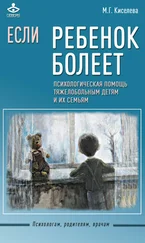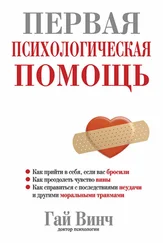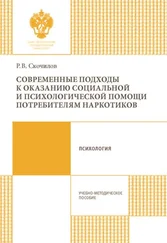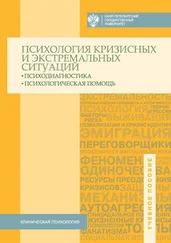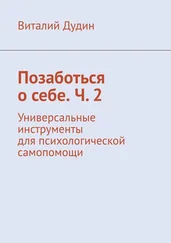Витакер Д.С. - Группы как инструмент психологической помощи
Здесь есть возможность читать онлайн «Витакер Д.С. - Группы как инструмент психологической помощи» весь текст электронной книги совершенно бесплатно (целиком полную версию без сокращений). В некоторых случаях можно слушать аудио, скачать через торрент в формате fb2 и присутствует краткое содержание. Жанр: Старинная литература, на английском языке. Описание произведения, (предисловие) а так же отзывы посетителей доступны на портале библиотеки ЛибКат.
- Название:Группы как инструмент психологической помощи
- Автор:
- Жанр:
- Год:неизвестен
- ISBN:нет данных
- Рейтинг книги:5 / 5. Голосов: 1
-
Избранное:Добавить в избранное
- Отзывы:
-
Ваша оценка:
- 100
- 1
- 2
- 3
- 4
- 5
Группы как инструмент психологической помощи: краткое содержание, описание и аннотация
Предлагаем к чтению аннотацию, описание, краткое содержание или предисловие (зависит от того, что написал сам автор книги «Группы как инструмент психологической помощи»). Если вы не нашли необходимую информацию о книге — напишите в комментариях, мы постараемся отыскать её.
Группы как инструмент психологической помощи — читать онлайн бесплатно полную книгу (весь текст) целиком
Ниже представлен текст книги, разбитый по страницам. Система сохранения места последней прочитанной страницы, позволяет с удобством читать онлайн бесплатно книгу «Группы как инструмент психологической помощи», без необходимости каждый раз заново искать на чём Вы остановились. Поставьте закладку, и сможете в любой момент перейти на страницу, на которой закончили чтение.
Интервал:
Закладка:
Brands, D. and Phillips, H. (1978), The Gamesters'handbook, London, Hutchinson.
421
Briscoe, С. (1978) 'Programme activities in social group work' chapter 14 in N.
McCaughan (ed.), Group Work: Learning and Practice, National Institute Social Services Library, no 33, London, George Allen & Unwin.
Coch, L. and French, J.R.P. (1948), 'Overcoming resistance to change', Human Relations, vol. 1, pp. 512—32. Reprinted in D. Cartwright, and A. Zander, (eds.), Group Dynamics: Research and Theory, Evanston, Illinois, Row, Peterson & Co, 1953. 2nd edn 1960.
Coche, E. (1983) 'Change measures and clinical practice in group psychotherapy', in R.R. Dies and MacKenzie (eds), Advances in Group Psychotherapy, Monograph I, American Group Psychotherapy Monograph Series, New York, International Universities Press, pp. 79—99.
Cohn, R.C. (1971), 'Living-learning encounters; the theme-centered interactional method', in G. Gottsegen, M. Gottsegen and L. Blank (eds), Confrontation: Encounters on Self and Personal Awareness, New York, Macmillan.
Corder, B.F., Whiteside, L. and Haizlip, T.M. (1981), 'Astudy of curative factors in group psychotherapy with adolescents', International Journal of Group Psychotherapy, vol. 31, pp. 345-54.
Corsini, R. and Rosenberg, B. (1955), 'Mechanisms of group psychotherapy: processes and dynamics', Journal of Abnormal and Social Psychology, vol. 51, pp. 406—11.
Davies, Bernard (1975), The Use of Groups in Social Work Practice, London, Routledge & Kegan Paul.
Dibner, A.S., Palmer, R.D., Cohen, B. and Gofstein, A.G. (1963), 'The use of an open-ended group in the intake procedure of a mental hygiene unit', Journal of Consulting Psychotherapy, New York, Hoeber.
Dick, В., Lessler, K. and Whiteside, J. (1980), 'A developmental framework for cotherapy', International Journal of Group Psychotherapy, vol. 30, pp. 273—85.
Dickes, R. (1975), 'Considerations of therapeutic and working alliances', International Journal of Group Psychotherapy, vol. 4, pp. 1—24.
Dies, R.R. (1977), 'Group therapist transparency: A critique of theory and research', International Journal of Group Psychotherapy, vol. 27, pp. 177—200.
Dies, R.R. (1979), 'Group psychotherapy: reflections on three decades of research', 262
International Journal of Group Psychotherapy, vol. 15, pp. 361—74.
Dies, R.R. and Cohen, L. (1976), 'Content considerations in group therapist self-disclosure', International Journal of Group Psychotherapy, vol. 26, pp. 71—88.
Dies, R.R. and MacKenzie, K.R. (eds) (1983), Advances in Group Psychotherapy, Monograph I, American Group Psychotherapy Monograph Series, New York, International Universities Press.
Durkin J.E. (ed.) (1981), Living Groups: Group Psychotherapy and General Systems Theory, New York, Brunner/Mazel.
Epstein, N. and Altman, S. (1972), 'Experiences in converting an activity group into verbal group therapy', International Journal of Group Psychotherapy, vol. 22, pp. 93-100.
Ezriel, H. (1950a), 'A psychoanalytic approach to the treatment of patients in groups', Journal of Mental Science, vol. 96, pp. 59—74.
Ezriel, H. (1950b), 'A psychoanalytic approach to group treatment', British Journal of Medical Psychology, vol. 7, pp. 29—48.
Ezriel, H. (1956), 'Experimentation within the psychoanalytic session', British Journal for the Philosophy of Science, vol. 7, pp. 29—48.
Ezriel, H. (1959), 'The role of transference in psycho-analytic and other approaches to group treatment', Acta Psychotherapeutica, vol. 7, pp. 101 — 16.
422
Ezriel, H. (1973), 'Psychoanalytic group therapy', in L.R. Wolberg and E.K. Schwartz (eds), Group Therapy: 1973, An Overview, New York, Stratton Intercontinental Medical Book Corp., pp. 183—210.
Fitz-Gibbon C.T. and Morris, L.L. (1978), How to Design a Program Evaluation, Beverley Hills, Sage Publications.
Foulkes, S.H. (1964), Therapeutic Group Analysis, New York, International Universities Press.
Foulkes, S.H. (1968), 'On interpretation in group analysis', International Journal of Group Psychotherapy, vol. 18, pp. 432—44.
Foulkes, S.H. (1975), Group Analytic Psychotherapy: Method and Principles, London, Gordon & Breach.
Foulkes, S.H. (1977), 'Notes on the concept of resonance', in L.R. Wolberg and M.L.
Aronson (eds), Group Therapy: 1977, An Overview, New York, Stratton Intercontinental Medical Book Corp., pp. 52—8.
Foulkes, S.H. and Anthony, E.J. (1957), Group Psychotherapy: The Psychoanalytic Approach, London, Penguin.
Frank, J.D. (1951, 1975), 'Some Problems of Research in group psychotherapy', International Journal of Group Psychotherapy, vol. 1, no. 1, Перепечатано в этом же
журнале, vol. 25, pp. 141—5.
Frank, J.D. (1975), 'Group psychotherapy research 25 years later', International Journal of Group Psychotherapy, vol. 25, pp. 159—62.
Freedman, M. and Sweet, B. (1954) 'Some specific features of group psychotherapy their implication for the selection of patients', International Journal of Group Psychotherapy, vol. 4, pp. 359.
French, T. (1952), The Integration of Behaviour: Basic Postulates, University of Chicago Press.
French, T. (1954), The Integration of Behaviour: The Integrative Process in Dreams, University of Chicago Press.
Fulkerson, C.C.F., Hawkins, D.M. and Alden, A.R. (1981), 'Psychotherapy groups of insufficient size', International Journal of Group Psychotherapy, vol. 31, pp. 73—81.
Gans, R. (1962), 'Group cotherapists and the therapeutic situation: a critical evaluation', International Journal of Group Psychotherapy, vol. 12, pp. 82—8.
263
Glatzer, H.T. (1978), The working alliance in analytic group psychotherapy', International Journal of Group Psychotherapy, vol. 28, pp. 147—61.
Golan, Naomi (1981), Passing Through Transitions: A Guide for Practitioners, New York, Free Press.
Goldberg, C. (1980), The utilization and limitations of paradoxical interventions in group psychotherapy', International Journal of Group Psychotherapy, vol. 30, pp. 287-97.
Grotjahn, M. (1972), 'Learning from drop-out patients', International Journal of Group Psychotherapy, vol. 22, pp. 306—18.
Grotjahn, M. (1977), The Art and Technique of Analytic Group Therapy, New York, Jason Aronson.
Grotjahn, M. (1979), 'Mistakes in analytic group psychotherapy', International Journal of Group Psychotherapy, vol. 29, pp. 317—23.
Grunebaum, H. (1975), 'A soft-hearted review of hard-nosed research on groups', International Journal of Group Psychotherapy, vol. 25, pp. 185—97.
Gump, P.V. and Sutton-Smith, B. (1955a), 'Activity-setting and social interaction: a field study', American Journal of Orthopsychiatry, vol. 25.
Gump, P.V. and Sutton-Smith, B. (1955b), The "it" role in children's games', The Group, vol. 17.
423
Gundlach, R.H. (1961), 'Problem: to convert a clinical judgment into a research design', International Journal of Group Psychotherapy, vol. 11, pp. 265—71.
Gundlach, R.H. (1967), 'Overview of outcome studies in group psychotherapy', International Journal of Group Psychotherapy, vol. 27, pp. 196—210.
Hadden, S.B. (1976), 'The homosexual group: formation and beginnings', in H.M. Rabin and M. Rosenbaum (eds), How to Begin a Psychotherapy Group: Six Approaches, London, Gordon & Breach.
Читать дальшеИнтервал:
Закладка:
Похожие книги на «Группы как инструмент психологической помощи»
Представляем Вашему вниманию похожие книги на «Группы как инструмент психологической помощи» списком для выбора. Мы отобрали схожую по названию и смыслу литературу в надежде предоставить читателям больше вариантов отыскать новые, интересные, ещё непрочитанные произведения.
Обсуждение, отзывы о книге «Группы как инструмент психологической помощи» и просто собственные мнения читателей. Оставьте ваши комментарии, напишите, что Вы думаете о произведении, его смысле или главных героях. Укажите что конкретно понравилось, а что нет, и почему Вы так считаете.

